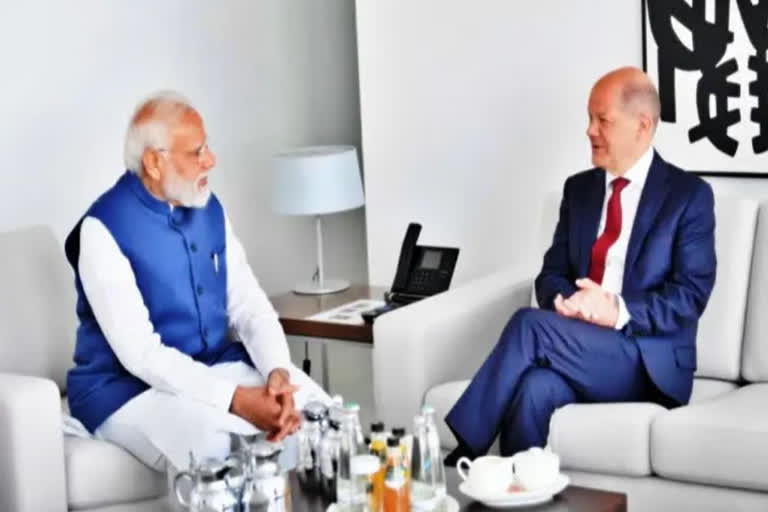New Delhi: With Germany being one of the prime hubs of anti-India secessionist activity for activists propagating the secessionism of Kashmir to carving out of an independent Khalistan for Sikhs, the two countries have bolstered efforts to share intelligence information from counter terror to issues of strategic importance.
On Monday, Indian foreign minister S. Jaishankar inked a ‘Joint Declaration of Intent’ with his German counterpart Annalena Baerbock “on the establishment of an agreement on the exchange and mutual protection of classified information and on the establishment of an agreement to establish a direct encrypted connection between MEA and German Foreign Office.”
What the pact will enable is to set up a protocol for the exchange and transfer of data relating to intelligence information between the two nations without letting any third party access the content. It will set up architecture to securely access data at the two terminal points, setting up of nodal officials on both sides and take care of the entire gamut of procedures and processes including a mechanism to deal with ‘fire-fighting’ measures in case of emergencies like information leakages.
While it is a normal procedure to have an end-to-end encrypted communication channel between two friendly countries, the one with Germany will have deep implications for Kashmiri and Sikh separatists operating from Germany. Proponents and activists including terror elements who are involved with the Khalistan movement including the Sikhs for Justice (SFJ) and Babbar Khalsa International (BKI) are known to be active in Germany. Indian intelligence sources say Germany is also being used to channelise finances collected from around the world to be sent to these separatist movements.
In December last year, acting on the request of Indian security agencies, the German authorities had picked up Jaswinder SIngh Multani, a SFJ activist believed to be involved in the bomb blast at the Ludhiana court complex on December 23, 2021, which killed one and injured many. Multani was picked up by the German police from central Germany's Erfurt.
Without naming Pakistan which is quite proactive in providing shelter and assistance to anti-India militants, the joint statement signed by visiting Indian PM Narendra Modi and the German federal chancellor Olaf Scholz gave a clarion call to root out terror infrastructure and ‘terror safe havens’. On February 5 this year, the Pakistan foreign ministry gave a customized document to a few of its foreign missions including the Pakistani embassy in Berlin to highlight the Kashmir issue on the occasion of Kashmir Solidarity Day.
The Indo-German joint statement said: “Both leaders strongly condemned terrorism in all its forms and manifestations, including any use of terrorist proxies and cross-border terrorism. They called upon all countries to work towards rooting out terrorist safe havens and infrastructure, disrupting terrorist networks and financing in accordance with international law, including international humanitarian law. They further called for concerted action against all terrorist groups.”
“Both sides also committed to continued exchange of information about sanctions and designations against terror groups and individuals, countering radicalism, and terrorists ‘use of the Internet and cross-border movement of terrorists.” The intelligence sharing and exchange of information will also work against money laundering and combating the financing of terrorism.
Read: PM Modi holds bilateral talks with German Chancellor Olaf Scholz


